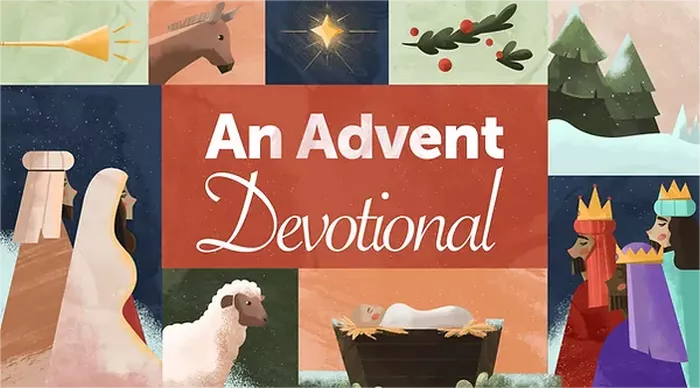The concept of Advent holds a significant place in Christian theology, serving as a period of anticipation and preparation for the celebration of the birth of Jesus Christ. Rooted deeply in biblical tradition, the Advent season offers a time for reflection, spiritual growth, and renewed hope. In this article, we delve into the biblical origins and significance of Advent, exploring its theological implications and practical applications for believers today.
Understanding Advent in Biblical Context
To comprehend the essence of Advent, one must first turn to the pages of the Bible. Although the term “Advent” itself does not appear in scripture, its themes and motifs resonate throughout both the Old and New Testaments. In the Old Testament, prophecies foretell the coming of a Messiah who would bring salvation and redemption to God’s people. Isaiah 7:14 prophesies, “Therefore the Lord himself will give you a sign: The virgin will conceive and give birth to a son, and will call him Immanuel.”
These prophetic utterances set the stage for the Advent of Jesus Christ. The New Testament further expounds upon these promises, with the Gospels of Matthew and Luke detailing the miraculous circumstances surrounding Jesus’ birth in Bethlehem. The Gospel of Matthew, in particular, emphasizes Jesus as the fulfillment of Old Testament prophecies, presenting Him as the long-awaited Messiah descended from the line of David.
Theological Significance of Advent
The theological significance of Advent lies in its dual nature of remembrance and anticipation. On one hand, it invites believers to reflect upon the historical event of Jesus’ birth, recognizing the profound implications of the Incarnation – God becoming flesh and dwelling among humanity. The Apostle John captures this truth succinctly in John 1:14: “The Word became flesh and made his dwelling among us. We have seen his glory, the glory of the one and only Son, who came from the Father, full of grace and truth.”
Simultaneously, Advent directs our gaze towards the future, reminding us of the eschatological hope embedded within the Christian faith. Just as the Israelites awaited the arrival of the Messiah, so too do believers eagerly anticipate the second coming of Christ, when He will establish His kingdom in its fullness and bring about the ultimate consummation of God’s purposes for creation.
Advent Themes and Symbols
Throughout the Advent season, several themes and symbols emerge, each carrying profound spiritual significance. The most common of these are the four candles of the Advent wreath, representing hope, peace, joy, and love – virtues embodied in the person of Jesus Christ. Week by week, these candles are lit, symbolizing the increasing light of Christ shining into the world amidst the darkness of sin and despair.
Additionally, the figure of John the Baptist occupies a prominent place in Advent observance, serving as a herald of Christ’s coming. As prophesied in Isaiah 40:3, John’s ministry was one of preparation, calling people to repentance and announcing the arrival of the Messiah. His message echoes down through the centuries, challenging believers to make ready their hearts for the coming of Christ.
Practical Implications for Believers
Beyond its theological depth and symbolic richness, Advent carries practical implications for believers in their daily lives. It serves as a season of spiritual discipline, inviting individuals to engage in practices such as prayer, fasting, and acts of charity. These disciplines foster a spirit of attentiveness and expectation, drawing believers into deeper intimacy with God as they prepare to celebrate the birth of His Son.
Moreover, Advent challenges the prevailing consumerism and materialism of contemporary culture, offering an alternative vision centered on the profound mystery of the Incarnation. Rather than succumbing to the pressures of holiday consumerism, believers are encouraged to cultivate a spirit of simplicity and generosity, reflecting the self-emptying love of Christ who, though He was rich, became poor for our sake (2 Corinthians 8:9).
Conclusion
In conclusion, the Advent season stands as a sacred and significant time within the Christian calendar, inviting believers to journey through the themes of anticipation, preparation, and expectation. Grounded in the biblical narrative of God’s redemptive plan for humanity, Advent calls us to remember the historical event of Jesus’ birth while also looking forward with hope to His second coming. As we light the candles of the Advent wreath and contemplate the significance of this season, may we be renewed in our faith and emboldened to live as faithful disciples of the one whose birth we celebrate – Jesus Christ, the true Light of the world.
FAQs
1. Is Advent a part of Christianity?
Yes, Advent is an integral part of Christianity, particularly within liturgical traditions such as Catholicism, Anglicanism, and Lutheranism. It marks the beginning of the Christian liturgical year and serves as a period of spiritual preparation and anticipation for the celebration of the birth of Jesus Christ.
2. Where did the Advent come from?
The concept of Advent has its roots in early Christian practices of fasting and penance leading up to the feast of Christmas. Over time, Advent evolved into a distinct liturgical season, incorporating themes of anticipation and preparation for the coming of Christ. Its origins can be traced to the early centuries of the Christian church, with formal observance becoming widespread by the Middle Ages.
3. Who is the founder of Advent?
Advent does not have a single founder in the same way that a religious movement might. Rather, it developed organically within the Christian tradition over centuries, shaped by the liturgical practices and theological insights of various individuals and communities. However, one could attribute its formalization and widespread adoption within Christian worship to the collective efforts of early church leaders, theologians, and liturgists who sought to enrich the spiritual life of believers through structured periods of anticipation and preparation for the celebration of Christmas.

